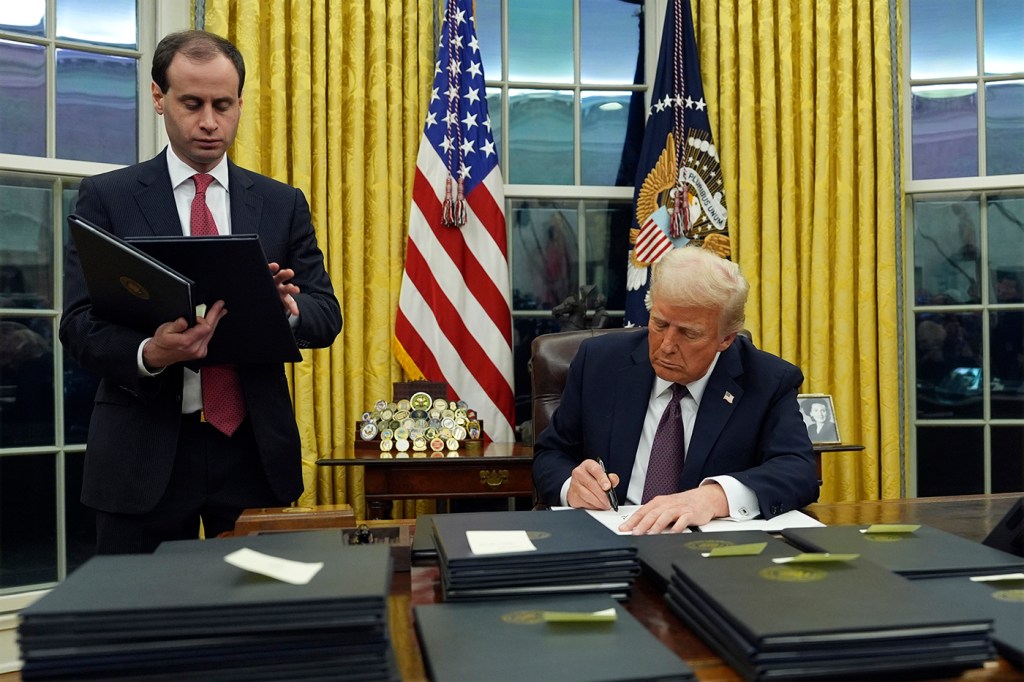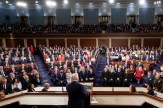Did Biden, Trump overstep in pardoning family members, Jan. 6. rioters?
Dan Urman, director of the law and public policy minor at Northeastern, says the pardon power is a “remarkable” executive tool, one with very few limits on the way it can be used.

After former President Joe Biden issued a slew of last-minute pardons on Inauguration Day, his successor promptly took the oath of office and issued a series of pardons affecting thousands of people just hours later.
It was a tale of two executives with a shared power. Biden pardoned several members of his family; lawmakers and staff members who served on the Jan. 6 congressional committee; and others such as retired Gen. Mark Milley and Anthony Fauci.
President Donald Trump, with a single stroke of the pen, pardoned nearly all of the Jan. 6 rioters, which includes more than 1,500 people — even those convicted of assaulting police officers.
The presidential pardon power is briefly stated in the The U.S. Constitution. Article II, Section 2 says the president “shall have Power to grant Reprieves and Pardons for Offences against the United States, except in Cases of Impeachment.”
Dan Urman, director of the law and public policy minor at Northeastern University, who teaches courses on the Supreme Court, says the pardon power is a “remarkable” tool of executive authority, one with very few limits on the way it can be used.
“The pardon power happens to be one of those presidential powers that is basically unreviewable,” Urman says. “It’s inherently political and there’s so little that the other branches can do.”
Still, Biden and Trump’s use of the pardon power represents a departure from the norm, Urman says. After his controversial pardon of his son Hunter Biden in December, Biden moved to issue what Urman describes as “prospective pardons” for family members, including his brother, James Biden; James’ wife, Sara Jones Biden; his younger sister, Valerie Biden Owens; Owens’ husband, John Owens; and his other brother, Francis Biden.
Although there is precedent for familial pardons — former President Bill Clinton pardoned his brother Roger, who by then had already served time for a drug offense — Urman says the move is notable in that it “might set a new precedent where presidents issue pardons to their family as they plan to leave office.”
Last week, Biden commuted the sentences of nearly 2,500 people convicted of nonviolent drug offenses, setting a record for the most individual pardons or commutations issued by a U.S. president. In December, Biden commuted sentences for 1,500 individuals on home confinement after leaving prison during the COVID-19 pandemic. He also commuted the sentences of 37 individuals on federal death row.
Following Biden’s lead — and within hours of assuming the presidency — Trump on Monday issued a blanket pardon for those involved in the Jan. 6 attack on the Capitol, while commuting the sentences of 14 others convicted in connection with the attack.
Editor’s Picks
What does it mean for those charged in the attack?
For any individuals with pending charges, it means the Department of Justice has to drop those charges, Urman says. For those who had already been convicted, a pardon may not erase their criminal record — a legal procedure known as expungement typically does that, he says. The pardoned individual may still have to ask the court to expunge their record, Urman says.
“The pardon does restore rights, like voting or holding public office or having access to firearms,” he adds.
Urman says the move was “unsurprising but still quite remarkable,” adding that it “undermines the rule of law, and suggests that there are no consequences for violently attacking law enforcement officers.”
Such heavy-handed use of the pardon power is likely to spur debate about whether reforms are necessary, Urman says. Lawmakers have tried to rein in the presidential power in the past — and those efforts appear to be taking shape again in some congressional corners.
“I think there will be a movement to reform the pardon power, but I doubt it will reach a veto-proof majority necessary to pass,” Urman says.
Of course, he notes, Trump would never sign such a bill in the first place.
The Department of Justice has an office pardon attorney tasked with overseeing the pardon process, which “usually takes months if not years” to come to fruition, Urman says.
“The pardon power can’t be used in cases of impeachment and Congress can always impeach a president, but as we saw with President Trump’s two impeachments, impeachment measures tend to become partisan political, rather than legal, proceedings,” Urman says.











